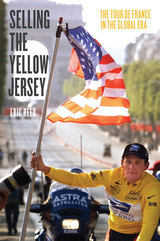2 books by Reed, Eric

Junctures in Women's Leadership
Health Care and Public Health
Mary E. O'Dowd
Rutgers University Press, 2021
Junctures in Women’s Leadership: Health Care and Public Health offers an eclectic compilation of case studies telling the stories of women leaders in public health and health care, from Katsi Cook, Mohawk midwife, to Virginia Apgar, Katharine Dexter McCormick and Florence Schorske Wald, to Marilyn Tavenner, Suerie Moon, and more. The impact of their work is extraordinarily relevant to the current public discourse including subjects such as the global COVID-19 pandemic, disparities in health outcomes, prevention of disease and the impact of the Affordable Care Act. The leadership lessons gleaned from these chapters can be applied to a broad array of disciplines within government, private business, media, philanthropy, pharmaceutical, environmental and health sectors. Each chapter is authored by a well versed and accomplished woman, demonstrating the book’s theme that there are many paths within health care and public health. The case study format provides an introductory section providing biographical and historical background, setting the stage for a juncture, or decision point, and the resolution. The women are compelling characters and worth knowing.
[more]

Selling the Yellow Jersey
The Tour de France in the Global Era
Eric Reed
University of Chicago Press, 2014
Yellow Livestrong wristbands were taken off across America in early 2013 when Lance Armstrong confessed to Oprah Winfrey that he had doped during the seven Tour de France races he won. But the foreign cycling world, which always viewed Armstrong with suspicion, had already moved on. The bellwether events of the year were Chris Froome’s victory in the Tour and the ousting of Pat McQuaid as director of the Union Cycliste Internationale. Even without Armstrong, the Tour will roll on— its gigantic entourage includes more than 200 racers, 450 journalists, 260 cameramen, 2,400 support vehicles carrying 4,500 people, and a seven-mile-long publicity caravan. It remains one of the most-watched annual sporting events on television and a global commercial juggernaut.
In Selling the Yellow Jersey, Eric Reed examines the Tour’s development in France as well as the event’s global athletic, cultural, and commercial influences. The race is the crown jewel of French cycling, and at first the newspapers that owned the Tour were loath to open up their monopoly on coverage to state-owned television. However, the opportunity for huge payoffs prevailed, and France tapped into global networks of spectatorship, media, business, athletes, and exchanges of expertise and personnel. In the process, the Tour helped endow world cycling with a particularly French character, culture, and structure, while providing proof that globalization was not merely a form of Americanization, imposed on a victimized world. Selling the Yellow Jersey explores the behind-the-scenes growth of the Tour, while simultaneously chronicling France’s role as a dynamic force in the global arena.
In Selling the Yellow Jersey, Eric Reed examines the Tour’s development in France as well as the event’s global athletic, cultural, and commercial influences. The race is the crown jewel of French cycling, and at first the newspapers that owned the Tour were loath to open up their monopoly on coverage to state-owned television. However, the opportunity for huge payoffs prevailed, and France tapped into global networks of spectatorship, media, business, athletes, and exchanges of expertise and personnel. In the process, the Tour helped endow world cycling with a particularly French character, culture, and structure, while providing proof that globalization was not merely a form of Americanization, imposed on a victimized world. Selling the Yellow Jersey explores the behind-the-scenes growth of the Tour, while simultaneously chronicling France’s role as a dynamic force in the global arena.
[more]
READERS
Browse our collection.
PUBLISHERS
See BiblioVault's publisher services.
STUDENT SERVICES
Files for college accessibility offices.
UChicago Accessibility Resources
home | accessibility | search | about | contact us
BiblioVault ® 2001 - 2024
The University of Chicago Press









